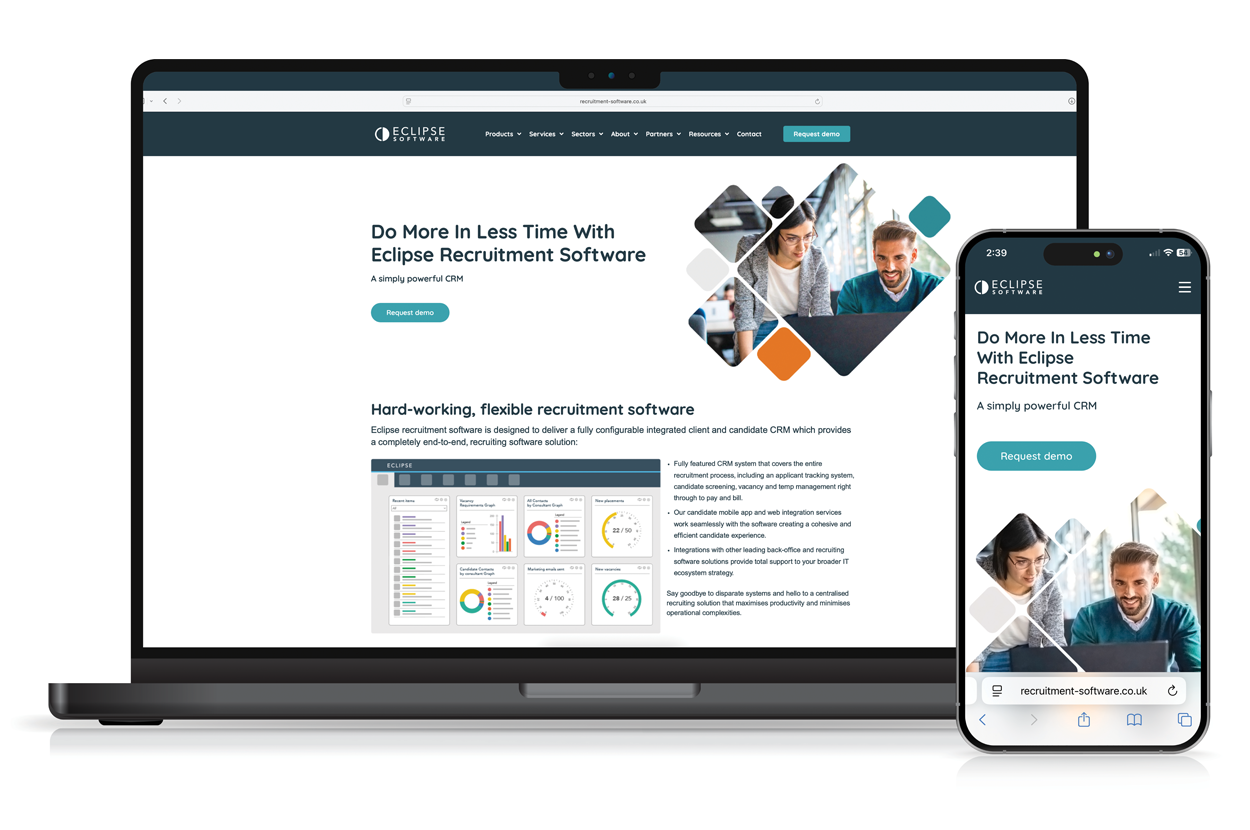
Since 1998, Google’s mission has been to “organise the world’s information and make it universally accessible and useful.” Fast-forward to now, and mobile devices now account for over 65% of all web traffic, and Google’s indexing reflects that shift.
With the complete rollout of mobile-first indexing, Google now uses your mobile website as the main version for ranking and indexing. That means if your recruitment website isn’t optimised for mobile, you’re already missing out on visibility and potential placements.
Let’s look at what this means for your agency and how to make sure your site is future ready.
What Is Google’s Mobile First Index?
In the past, Google primarily crawled and ranked the desktop version of your website. Now, the mobile version takes precedence. If your desktop site contains more information or features than your mobile one, Google may not even consider that extra content when ranking your site.
Key takeaway to not is: If it’s not accessible on mobile, Google (and your audience) won’t see it.
What Is a Mobile Friendly Website?
A mobile-friendly website offers a seamless, fast, and accessible user experience, no matter the device.
In 2025, Google goes beyond layout and responsiveness. It measures user experience using:
- Core Web Vitals: page loading speed, interactivity, and visual stability.
- Mobile usability: clickable buttons, clear navigation, and readable text.
- Content parity: identical or equivalent content across desktop and mobile versions.
If your recruitment website was built several years ago, it’s worth checking that it still meets Google’s performance and usability benchmarks.

Why Mobile SEO Matters for Recruitment Agencies
Imagine your agency, Talent+ Solutions, has a great-looking desktop website built in 2019. It’s fast, full of useful content, and brings in client leads. But on mobile, it’s slow, hard to read, and frustrating to navigate.
When Google’s crawlers analyse your site today, they see the mobile version first, and if it performs poorly, your search rankings will drop. That means fewer candidates see your job listings and fewer clients find your services.
In a world where candidates job-hunt on their phones, a bad mobile experience equals lost opportunities.
How to Optimise Your Recruitment Website for Mobile
Here’s how to ensure your recruitment site performs well in Google’s mobile-first era:
- Run a Mobile-Friendly Test Run your website through a Mobile-Friendly Test to see how your site performs.
- Check Core Web Vitals Test your speed and stability using PageSpeed Insights. Aim for under 2.5 seconds for page load.
- Ensure Content Parity Keep your job listings, contact details, and service pages consistent across desktop and mobile.
- Review Structured Data Add or check JobPosting schema to help Google display your listings in rich results.
- Audit Your Candidate and Client UX View your site like a job seeker: can they find and apply to jobs easily? Can clients contact you in one tap?
- Talk to Your Web Developer or SEO Partner If your site hasn’t been reviewed since 2021, it’s time. Even minor technical fixes can dramatically improve rankings and conversions.
For recruitment agencies, mobile isn’t just a channel, it is often the primary channel. Candidates and clients increasingly engage via smartphones, tablets, and other devices. Ensuring your website is mobile-responsive, high-performing, accessible and content-equivalent to desktop is no longer optional.
The mobile-first index was the beginning of the shift. But the full shift is now broader: mobile-optimised experience, performance, accessibility, intent-driven design, and structured data all matter.
By investing now in your mobile (and multi-device) strategy, you’ll not only avoid ranking pitfalls, you’ll gain competitive edge: attracting more candidates, converting more clients, and building a stronger brand in a mobile-driven recruitment market.